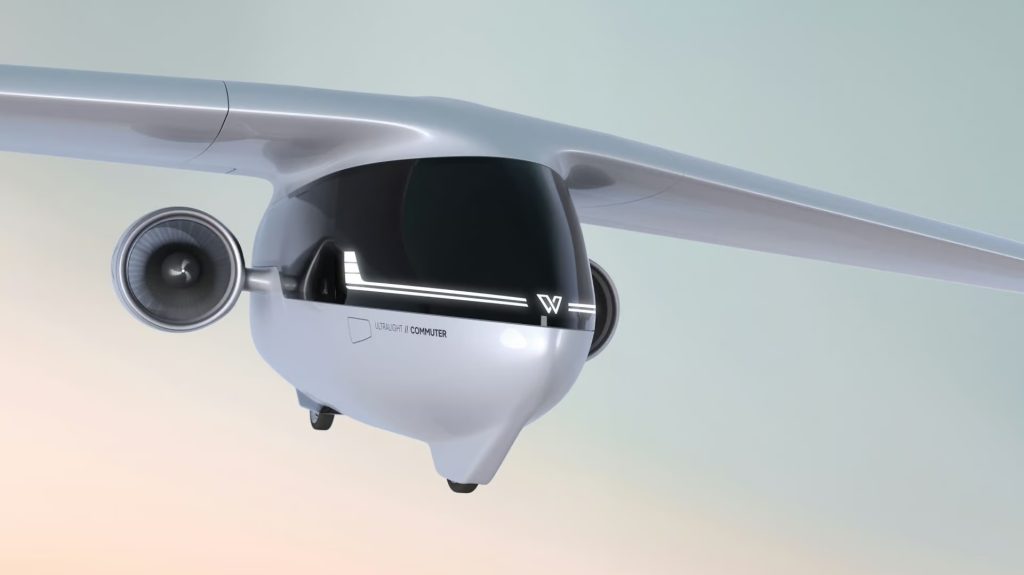Along with Tennessee Tech, Tennessee-based ultralight aircraft company Whisper Aero has secured a $500,000 grant to help advance the company’s innovative electric jet motor concept off the drawing board and onto the testing phase.
Earlier this month, the Tennessee Department of Economic and Community Development (TNECD) announced plans to award $500,000 to Tennessee Tech and Whisper Aero through the Transportation Network Growth Opportunity (TNGO) initiative.
“We look forward to using these award dollars to place students in internships working directly with Whisper Aero leaders,” said Tennessee Tech President Phil Oldham. “By learning from an electric propulsion innovator like Whisper Aero, our students will gain invaluable perspective and can take what they have learned in the classroom and apply it right here in Tennessee.”
The grant will see a Whisper Aero glider fitted with a pair of the company’s eQ250 electric-powered jet “propulsors” for UltraQuiet flight. Tennessee Tech faculty and students will carry out copper-bird ground testing to ensure the safe integration of engines, batteries, and controllers, and kickstart Tennessee Tech’s new Crossville Mobility Incubator.
Those propulsors, by the way, are super cool.

Whisper Aero’s main claim to fame is its innovative UltraQuiet WhisperDrive (above). It’s effectively an electrically spun ducted fan jet engine that uses a large number of stiff composite fan blades inside a lightweight, acoustically treated duct. With so many blades, the Whisper Aero propulsor can push more air than a conventional prop while spinning much more slowly. As such, the “blade passage frequency” moves up to more than 16,000 Hz – outside the range of most human hearing but not, supposedly, high enough to freak out the beagles.
The Whisper Aero ultralight is effectively an Aériane Swift3 glider fitted with a pair of Whisper’s eQ250 propulsors, each capable of up to 80 lbs. of thrust. The Ultralight has a wingspan of over 40 ft with a maximum L/D of 35:1 and can be stressed to a design loading of +6/-4g, making it capable of some pretty impressive acrobatic feats.
The Swift3 glider is designed for a low speed, low power cruising speed of 45–55 knots with “just” 6.5 hp. Power-off glides from a few hundred feet showed a low sink rate, and a climb rate of 1,250 ft/min with full self-launching power (in other words: the Whisper glider doesn’t have to be towed by a launch vehicle, like a conventional ultralight glider).
Quiet cool

Range under full power is about 109 miles with current battery tech, but it’s expected that range under the latest EPiC 2.0 energy batteries would rise to nearly 170 miles.
Nathan Millecam, CEO of Electric Power System, said, “EPiC 2.0’s leap in energy density and thermal performance has enabled a significant increase in range, a clear validation of our next-gen cell technology. We are impressed by what the Whisper team continues to achieve in advancing electric aviation.”
The press release concludes explaining that flight tests are expected to show that the Whisper Aero glider can be flown, “a few hundred feet away from neighborhoods without any disturbances, while carrying a 220 lbs. payload with full range,” which is all kind of ominous in today’s political climate, but still pretty neat from a purely tech perspective.
The TNGO grant follows a separate grant from NASA awarded last year, though that grant aims to develop the eQ250s – not as a propulsion system, but as a key component in future spacecraft ventilation systems.
Tennessee Tech announces TNGO grant
With support from TNECD’s Transportation Network Growth Opportunity (TNGO) initiative, Tennessee Tech University and Whisper Aero are partnering to advance next-generation propulsion technology in the aerospace industry. This collaboration will enhance aerospace research and workforce development, ensuring Tennessee remains a leader in cutting-edge mobility solutions.
TNECD
SOURCE | IMAGES: TNECD; via eVTOL Insights, New Atlas.

If you’re considering going solar, it’s always a good idea to get quotes from a few installers. To make sure you find a trusted, reliable solar installer near you that offers competitive pricing, check out EnergySage, a free service that makes it easy for you to go solar. It has hundreds of pre-vetted solar installers competing for your business, ensuring you get high-quality solutions and save 20-30% compared to going it alone. Plus, it’s free to use, and you won’t get sales calls until you select an installer and share your phone number with them.
Your personalized solar quotes are easy to compare online and you’ll get access to unbiased Energy Advisors to help you every step of the way. Get started here.
FTC: We use income earning auto affiliate links. More.


